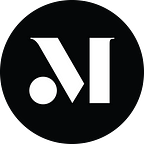Future Sessions: Q&A with Callie Thompson from Headspace
Callie Thompson is known for leading teams to produce products and services that shift behavior and culture. For the last 12 years Callie has worked with companies and NGOs in retail, energy, fashion, manufacturing, travel, automotive, hospitality, land conservation, HIV/AIDS services, and now mindfulness and healthcare at Headspace, one of the first meditation apps in the world and a leader in mindfulness and mental training.
Join Callie, Meetesh Karia from The Zebra, and Angela Wong from H-E-B for a free livestream conversation on September 29 to discuss how to design for the unknowns in the current landscape and why we haven’t (yet) built the future we imagined.
In the meantime, Callie is sharing some insights into designing for inclusion and equity, inspiration, how design can reshape society, and the best advice she ever received.
Completely depends on the context and depends on your definition of “best.” If “best” means serving more people, then sometimes incremental design is better because it’s more relatable and less destabilizing for people.
I get to be unconstrained by prior limitations, complications, or previous discouragements. Right now, the restructuring of society that has happened because of Covid-19 makes it more possible for us to radically design the world around us to become a compassionate, honest, and culturally safe and celebratory place to live.
Make your decisions with the next seven generations in mind.
I approach making digital products and services with the goal of both including people and going beyond that to celebrate them. I know how powerful a welcome mat can be. Language says so much and an atmosphere of welcoming says so much. Representation says so much, whether that’s of diverse ages or cultures or sexual identities or topics one wants to meditate one.
At Headspace, our service has demystified meditation and mindfulness, and made them more accessible. I feel happy to get to work on challenges like this there.
It’s important to create a safe space for your team to explore new ideas. My work outside of Headspace, as a mindfulness and awareness teacher, helps me see what my team needs emotionally and logistically. It also clears my own mind and makes me more whole so I can show up for my teams.
The best design “advice” I’ve ever gotten was from working alongside or for brilliant designers throughout product and service development projects and getting to experience the full process of making things with them. Those experiences have guided how I work today, which is heavily about collaborative making/drawing on whiteboards and visualization of the work in its various iterations up on the walls (pre-covid) throughout the process. Systems are too big for us to keep them in our heads — they have to be externalized.
There is something Jon [Kolko, founder of AC4D and COO of Modernist Studio] said once that has always stuck with me…something to the effect of:
The recent 99 percent invisible episode called “Policing the Open Road” is a super valuable history on where traffic policing originated. Its history and their story in the podcast on what the City of Berkeley is doing, removing traffic policing and giving that role to Berkeley Department of Transportation is awesome. Now the people designing the roads will also enforce the rules of them, and thus can see why perhaps many people are running a stop sign — maybe it’s blocked by a tree, or the intersection is badly designed…
And for some addition inspiration, check out Callie’s paintings and textiles based on the patterning in the natural world. In addition to being a designer and mindfulness teacher, she’s a talented artist! Her work has been used in fashion, interiors, stage design, album art, and print and are in shops in the U.S. and Europe.
About Headspace
Headspace was created with one mission in mind: to improve the health and happiness of the world. Reaching more than 65 million users in 190 countries, Headspace was one of the first meditation apps in the world and remains a leader in mindfulness and mental training. They are committed to advancing the field of mindfulness through clinically-validated research, with one of the largest research pipelines of any digital health and wellness company. Headspace operates a B2B business (Headspace for Work) to offer its mindfulness products and services to more than 700 companies, such as Starbucks, Adobe, and GE, to help them build healthier, more productive cultures and higher performing organizations. They support government entities like New York State and the UK’s National Health Service (NHS) and partner with brands such as Apple and Amazon, as well as Nike, NBA and the U.S. Women’s National Soccer Team.
Headspace Health is pioneering new ways to incorporate the Headspace mindfulness experience into digital medicine.
Headspace has been recognized by Fast Company as one of the World’s Most Innovative Companies, Apple’s Best of 2018, Samsung’s Best of 2019 and one of CB Insights’ top digital health companies, along with being selected for five Webby Awards in health and fitness between 2018 and 2019.
Reserve your ticket for Future Sessions on September 29th at 5:30pm CT. This free event is part of World Interaction Design Day (IxDD), presented by Adobe and IxDA.
And follow us here at Perspectives on Design as we share interviews with more of our Future Sessions speakers Elizabeth Gore, Meetesh Karia, and Angela Wong.
If you missed it, you can read past interviews with Joah Spearman, Founder of Localeur and Diana Griffin, Product Manager at Nava.
